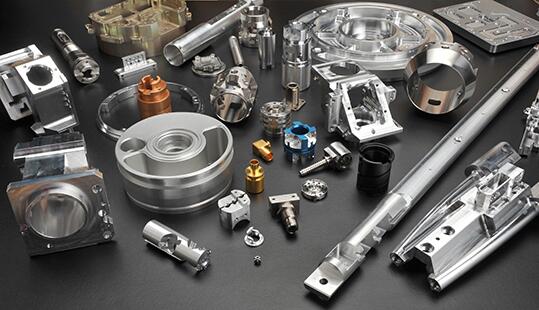BETTER TOUCH BETTER BUSINESS
Contact Sales at Lori.
When selecting a CNC material for a machining project, a number of factors need to be considered to ensure optimal performance, cost-effectiveness and compatibility. Here are the key factors to consider:
1. Characteristics that affect processing performance
●Machinability: The machinability of materials is an important consideration because it affects the ease and speed of the CNC manufacturing process. Materials with good machinability help reduce machining time, labor costs and tool wear.
●Tensile strength: The tensile strength of a material determines its ability to resist fracture or deformation under stress. High-strength materials are more durable, but can be more challenging to process.
● Hardness: The hardness of the material affects the wear of the tool during processing. Harder materials may require more robust tools and cutting parameters to achieve the desired results.
● Ductility: Ductility refers to the ability of a material to bend and stretch without breaking. Highly malleable materials can be a challenge for machines because they can deform or stick cutting tools.
2. Cost consideration
●Material cost: When selecting CNC machining materials, the cost of the material itself is an important consideration. High-end materials may offer superior performance, but may not be cost-effective for some applications.
●Processing cost: The processing performance of the material will also affect the processing cost. Materials that are difficult to process may require more labor and time, resulting in higher costs.
3. Availability of materials
Material availability: Some materials may be difficult to procure, which can affect production times and increase costs. When selecting CNC machining materials, the availability of materials must be considered.
4. Material compatibility with other components or parts
Material compatibility: The materials used in CNC manufacturing must be compatible with other components or parts used in assembly. Material compatibility ensures that the final product meets the required specifications and functions as expected.
Overall, selecting the right material for CNC machining requires consideration of a number of factors, including material properties that affect machining performance, cost considerations, availability of the material, and compatibility with other components or parts. By evaluating these factors, manufacturers can select the right materials to provide the best performance, cost-effectiveness and compatibility for their CNC machining projects.

Final Thoughts
In short, choosing the right material is crucial to achieving the desired results of CNC machining. The five CNC materials discussed in this article - aluminum, stainless steel, brass, titanium, and plastic - each have their own unique properties, applications, advantages, and disadvantages. When selecting materials for CNC machining, it is important to consider factors such as material characteristics, cost considerations, material availability, and material compatibility with other components or parts that affect machining performance. By carefully considering these factors, you can ensure that you choose the right material for your CNC machining project and achieve the desired results
Copyright © 2025 Shenzhen Lori Technology Co.Ltd. | All Rights Reserved.